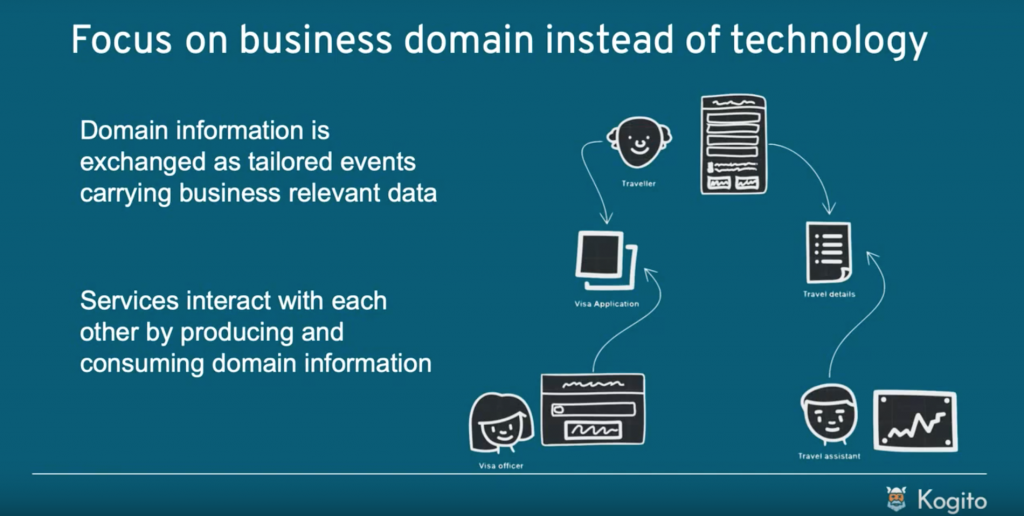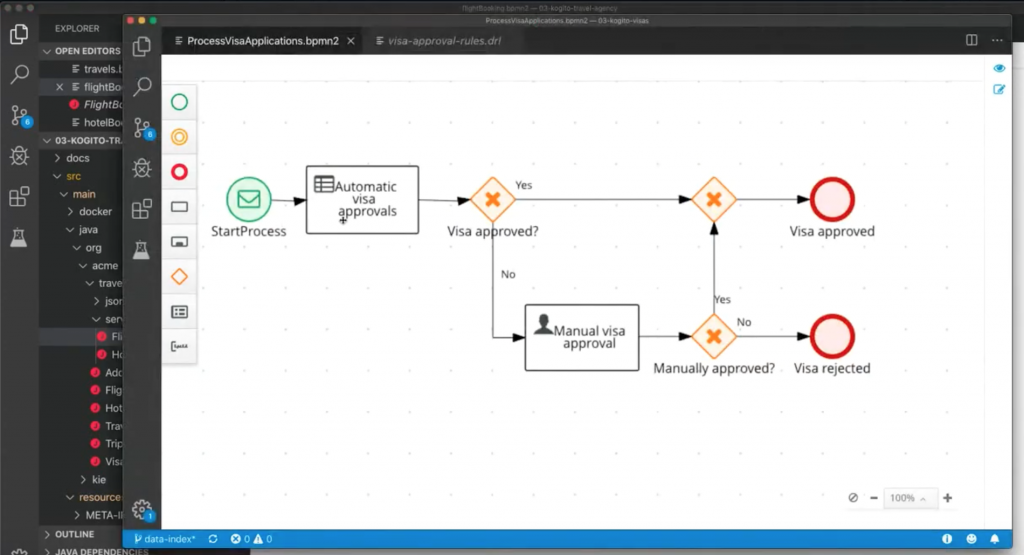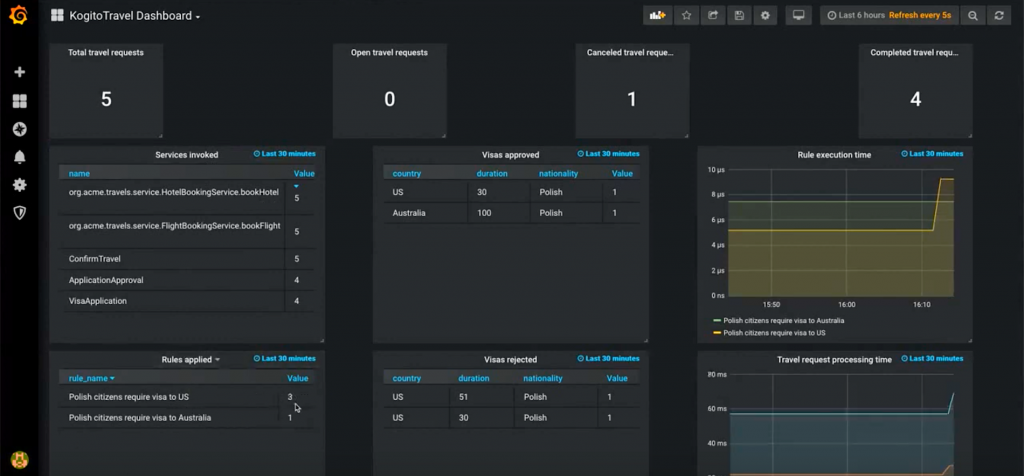Kogito is a new Java toolkit, based on Drools and jBPM, that’s made to bring rules and processes to the Quarkus world. The DevNation Live tech talk at the end of this article explains how Kogito can be used to build cloud-ready, event-driven business applications, and it includes a demo of implementing the business logic of a complex domain.
Kogito itself is defined as a cloud-native business automation toolkit that helps you to build intelligent applications. It's way more than just a business process or a single business rule—it’s a bunch of business rules, and it's based on battle-tested capabilities.
Focus on the business domain
One of the most important things in the Kogito ecosystem, or in the way you build with Kogito, is the focus on the business domain rather than the technology itself.

In the example use case, we have a startup travel agency, called Kogito Travel Agency, that wants to increase its online presence. In the example, we have a traveler, a visa officer, and a travel assistant, all of whom want to be informed as soon as they need to react to some action that is waiting for them. In terms of the overall architecture, we have two main services: the Kogito travel agency service and the Kogito visas. Those are microservices.
The backbone of the application is actually a business process that is exposed as a service. The process itself has several nodes that you need to traverse, which define the way the application is actually built up. Then, we can use “process composition” to divide the actual business process into multiple steps or smaller pieces.
Message events
The other service, which is responsible for visa applications, is only initiated with the message event, and that message event is connected to a Kafka topic. As a message arises for the Kafka topic, it will create a new instance of that process.

The idea is to start enhancing the process even more, so those events can produce other events that are of business relevance.
For the last step, the travel requests are completed. But, since everything is domain driven and business relevant, we can now take advantage of Grafana and the metrics that we expose. As you can see, it's not just that we have the basic information about travel requests—how many are open, canceled, or completed, etc. We also have indirect information about what services have been invoked or what rules have been applied.

So, now we can start deriving not only the business-related information but the domain-specific information as well.
Watch the complete DevNation Live tech talk below. DevNation Live tech talks are hosted by the Red Hat technologists who create our products. These sessions include real solutions and code and sample projects to help you get started. In this talk, presented by Red Hat’s Maciej Swiderski, Principal Software Engineer, and Burr Sutter, Chief Developer Evangelist, you’ll learn about event-driven business automation using Kogito, Quarkus, and more.
Get more details in the demo: https://github.com/mswiderski/kogito-travel-agency-tutorial
Learn more
Join us at an upcoming developer event, and see our collection of past DevNation Live tech talks.
Last updated: July 1, 2020